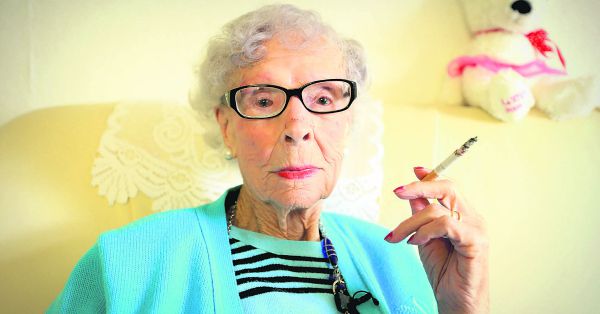Ever wondered what the secret is to reaching the elusive one-hundred-year mark? Those hoping to find the answer might have been disappointed at last Wednesday night’s showing of Older than Ireland, as the ensemble of centenarians seemed to conclude that there is no enlightened path to reaching the eligible age for the two thousand, five hundred and forty euro cheque from the President. But the film, screened in the company of its creator, Alex Fegan, was undoubtedly enjoyed by its audience, as we were treated to a feature that was poignant, warm and hilariously funny.
Indeed, it is no surprise that Older than Ireland has already earned rave reviews, after scooping up the Best Documentary Award at the this year’s Galway Film Fleadh. The documentary stars 30 Irish centenarians aged between 100 to 113, all born before 1916. The documentary reflects on their lives, from the time of their birth at the dawn of Irish independence to their lives in modern day Ireland.
I, however, arrived a little sceptical. The last talking-heads documentary I saw was His & Hers, which had also received much acclaim, and I found that film to be edging on the mundane. Perhaps it was a side-effect from spending the day stuck in the Ussher, but I found myself bursting into heartfelt laughter on dozens of occasions as we listened to the stories from the film’s many comic personalities, including my particular favourite, Bessie Nolan. An avid smoker, the 103-year-old Dubliner told the camera about a local girl who would “be a lovely looking girl if she left herself alone”, rather than donning herself with “four sets of eyelashes” and “half a ton of black” on her eyes. Nolan concluded, “I’d love to wash her!”
The characters were utterly authentic, holding nothing back from the camera, perhaps because, as Fegan later commented, “they couldn’t care less…they have no future job prospects!” As each told stories, every emotion was expressed as they recalled their joys and sorrows, from topics of a whimsical nature to the reason for their existence on this Earth. One could only conclude how alike we all are: twenty two or one hundred and two, most of us are never really sure what life is all about.
Fegan, one of the country’s most successful young film makers, was on-hand for a Q&A session after the showing. The audience’s enthusiastic engagement reflected the accessible and moving quality of the film. Talking about his inspiration, Fagen explained that reflecting on a lady’s one hundredth birthday party, he began to think about how incredible such an event really was. His idea was to link the film with the current decade of commemorations and the one hundredth anniversary of the 1916 Rising next year. Having received funding for making a historical film, he laughed as he remembered initial comments like, “What’s all this talk about kissing about!”
Fegan spoke warmly of his encounter with Kathleen Snavely, the oldest Irish person ever on record, at 113 years of age. Having flown to New York only to hear she no longer wanted to take part, he happily recounted that upon hearing his Irish brogue she soon changed her mind and “was even kind of flirty.” She imparted one piece of advice to young Fegan: “Put your money in your will.” Snavely had given away her own riches when she reached one-hundred, only to live another thirteen years. Sadly, she passed away three days before the premier of the film earlier this year.
Although many of the people featured in the film were either in a nursing home or living with someone else, according to Fegan, about one third were living alone. When asked if he felt these people were lonely, he referred to one of the men who lived in a bedsit. As he was leaving, the man offered him a drink and the two men drank their Guinness while sitting on the man’s bed. Fegan explained that nearly all the thirty participants believed that Ireland was “a far better place now” than when they were young, but that a loss of neighbourliness and community was something they noted with sadness.
The event was organised through cooperation between DU Film Society and Trinity VDP, with the four euro entry fee donated to the latter organisation. The DVD of the film will be available to purchase online from November 20th, while Fegan revealed that a project is underway to create a book on the theme.







